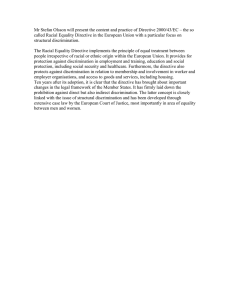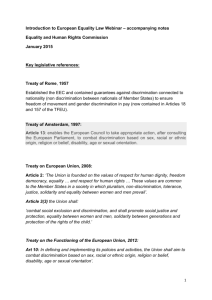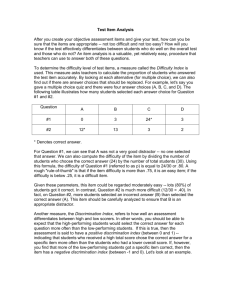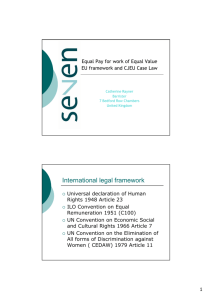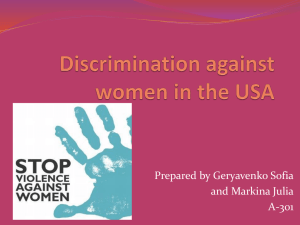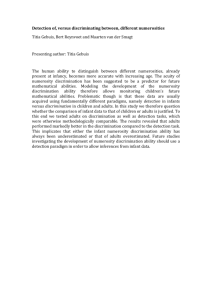Jurgen Tiedje - European Consumer Summit 2014
advertisement
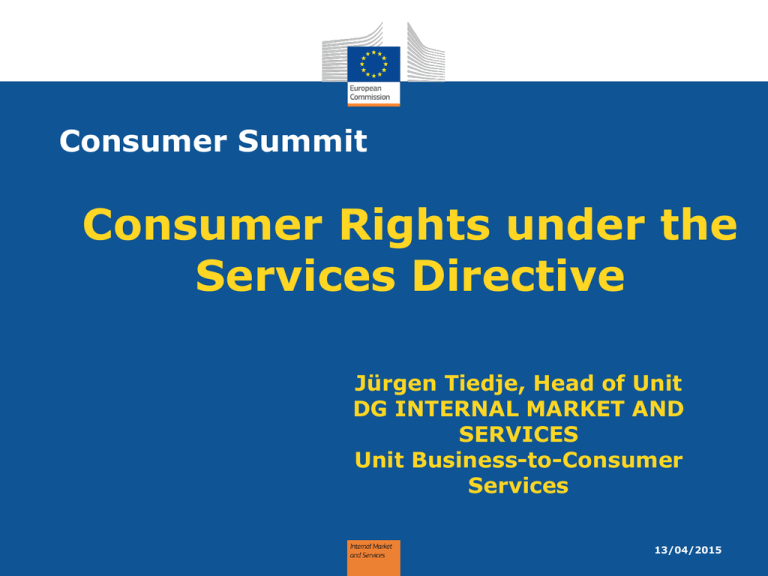
Consumer Summit Consumer Rights under the Services Directive Jürgen Tiedje, Head of Unit DG INTERNAL MARKET AND SERVICES Unit Business-to-Consumer Services 13/04/2015 Services Directive • Offers particular safeguards also to service recipients (consumers and business alike) • Article 20 (1): ban on discrimination by public authorities • Article 20 (2): ban on discrimination by companies? • Discrimination banned to enable consumers to buy anywhere in the EU with greater confidence. • What kind of discrimination? Different treatment based on nationality or place of residence of EU citizens – Most frequent: refusal to supply or different conditions applied (e.g. higher prices) • No discrimination where differences applied by companies are based on objective criteria (e.g. lack of copyright). 4/13/2015 2 Examples of cases • A UK citizen living in France wished to buy an e-book reader from an online retailer on its UK webpage but was told that, because he lived in France, he had to make a deal with the retailer on its international webpage. • Austrian ski lift operators in skiing regions Tirol and Arlberg offer preferential rates to local customers and exclude foreigners from such offers. 13/04/2015 The scale of the problem • Consumers complained with European Consumer Centres (more than 200 cases between 2010 and 2012): – 74% : online distribution of goods – 21%: online booking in tourism and for leisure activities – 5%: online rental of cars or other leasing services • Consumers responded to surveys (Eurobarometer 2013) – 22% of EU citizens active online experienced problems when shopping online in the EU • Consumers using their computer (IP-address) at home – DG Internal Market carried out a study "web-scraping" of websites of companies in 2013 – Consistently higher prices found for IP addresses located in particular in Sweden, Italy and Cyprus (for popular amusement park) 4/13/2015 4 List of issues • Challenge: ban on discrimination versus contractual freedom of companies? • Objective criteria justifying different treatment: – additional costs incurred because of the distance involved or the technical characteristics of the provision of the service, or different market conditions (higher or lower demand influenced by seasonality) – different vacation periods in MS, – pricing by different competitors, – extra risks linked to rules (consumer law), – lack of intellectual property rights 5 Next steps • Reduce justifications through regulatory and technical progress – Ongoing : Consumer Rights Directive – Future: e.g. Copyright reform, payment services (retail financial services, credit cards) • Steps with regard to the Services Directive? Need for reform? – Awareness amongst consumers & enhancing transparency: information campaign (brochure) in spring 2014 and conference in Brussels on 19 November 2014 – Further research: what is unjustified price discrimination? – Further policy discussion: • focusing next steps on consumers going online? • consumers moving to other Member States to receive services? 6
